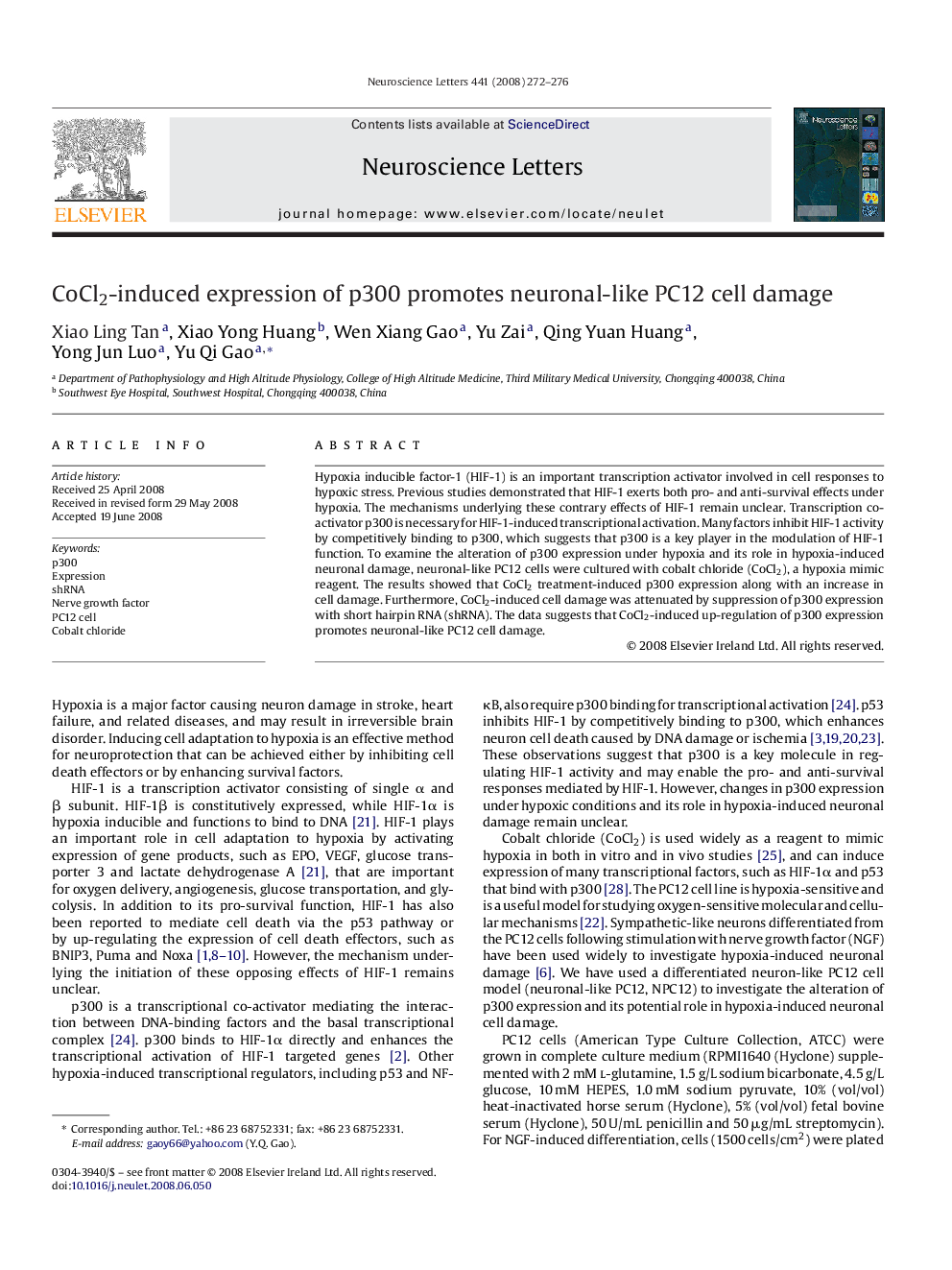| Article ID | Journal | Published Year | Pages | File Type |
|---|---|---|---|---|
| 4348385 | Neuroscience Letters | 2008 | 5 Pages |
Abstract
Hypoxia inducible factor-1 (HIF-1) is an important transcription activator involved in cell responses to hypoxic stress. Previous studies demonstrated that HIF-1 exerts both pro- and anti-survival effects under hypoxia. The mechanisms underlying these contrary effects of HIF-1 remain unclear. Transcription co-activator p300 is necessary for HIF-1-induced transcriptional activation. Many factors inhibit HIF-1 activity by competitively binding to p300, which suggests that p300 is a key player in the modulation of HIF-1 function. To examine the alteration of p300 expression under hypoxia and its role in hypoxia-induced neuronal damage, neuronal-like PC12 cells were cultured with cobalt chloride (CoCl2), a hypoxia mimic reagent. The results showed that CoCl2 treatment-induced p300 expression along with an increase in cell damage. Furthermore, CoCl2-induced cell damage was attenuated by suppression of p300 expression with short hairpin RNA (shRNA). The data suggests that CoCl2-induced up-regulation of p300 expression promotes neuronal-like PC12 cell damage.
Related Topics
Life Sciences
Neuroscience
Neuroscience (General)
Authors
Xiao Ling Tan, Xiao Yong Huang, Wen Xiang Gao, Yu Zai, Qing Yuan Huang, Yong Jun Luo, Yu Qi Gao,
